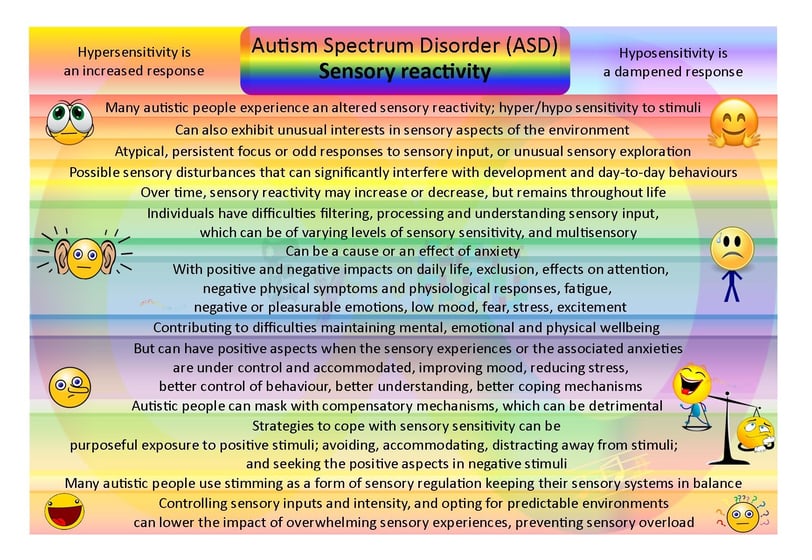Sensory reactivity
An overview of what is sensory reactivity and some corresponding strategies
SENSORY PROCESSING
1/17/20241 min read


Many autistic people experience an altered sensory reactivity; a hyper/hypo sensitivity to stimuli. They can also exhibit unusual interests in sensory aspects of the environment. Hypersensitivity is an increased response to stimuli. Hyposensitivity is a dampened response to stimuli. Sensory reactivity is an atypical, persistent focus or odd responses to sensory input, or unusual sensory exploration.
Possible sensory disturbances can significantly interfere with development and day-to-day behaviours. Over time, sensory reactivity may increase or decrease, but remains throughout life. Individuals have difficulties filtering, processing and understanding sensory input, which can be of varying levels of sensory sensitivity, and multisensory. It can be a cause or an effect of anxiety. It has positive and negative impacts on daily life, exclusion, effects on attention, negative physical symptoms and physiological responses, fatigue, negative or pleasurable emotions, low mood, fear, stress, excitement, etc. It can contribute to difficulties maintaining mental, emotional and physical wellbeing.
There can be positive aspects when the sensory experiences or the associated anxieties are under control and accommodated, improving mood, reducing stress, better control of behaviour, better understanding, better coping mechanisms. However, autistic people can mask with compensatory mechanisms, which can be detrimental. Fortunately, strategies exist to cope with sensory sensitivity, namely, purposeful exposure to positive stimuli; avoiding, accommodating, distracting away from stimuli; and seeking the positive aspects in negative stimuli. Many autistic people use stimming as a form of sensory regulation keeping their sensory systems in balance. Controlling sensory inputs and intensity, and opting for predictable environments can lower the impact of overwhelming sensory experiences, preventing sensory overload.
